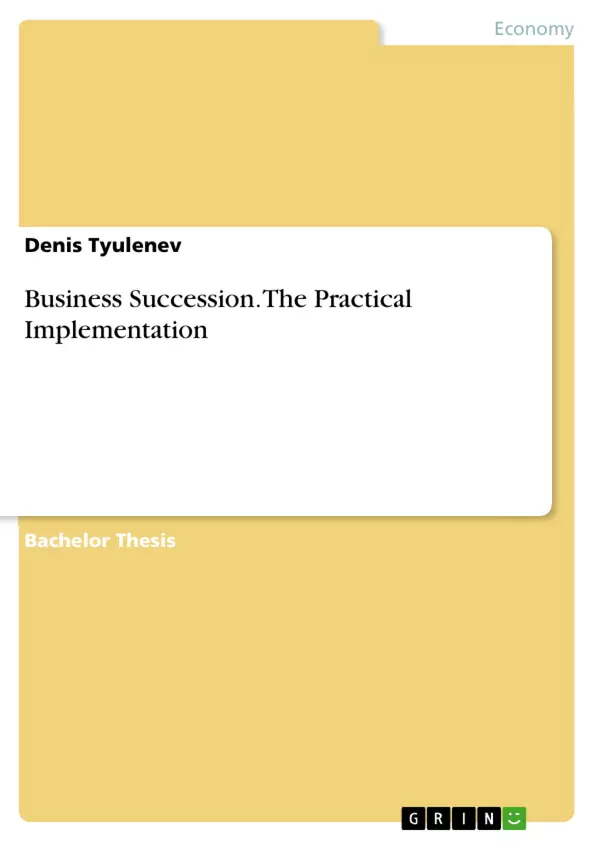In the landscape of German SMEs, a significant challenge looms on the horizon: business succession. Recent figures from KfW indicate that a third of German entrepreneurs are over 60, accounting for about 1.2 million individuals. By the end of 2026, an estimated 15% of Germany's 3.8 million SMEs are anticipated to undergo succession. The most critical obstacle in this transition is the acute shortage of suitable successors, a gap that threatens the success of many transfer plans. As a result, approximately 46,000 companies are at risk of failing in their succession efforts.
This situation is further compounded by a 36% increase, from 2018 to 2022, in businesses needing successors compared to 2010 to 2014, indicating a growing trend of retiring owners but fewer candidates to take their place. The IfM Bonn estimates about 772,000 family businesses are set for succession, with around 190,000 are ready for transfer between 2022 and 2026. This scenario underscores the necessity of continuity for economic stability and necessitates a deep dive into business succession research.
Business succession is not merely a transaction but a complex, multifaceted process. It encompasses not only legal and financial considerations but also addresses societal and psychological elements. Effective succession planning demands longterm preparation and strategic decision-making, considering both business management and the human elements involved.
This thesis adopts a deductive approach, employing agency theory as a foundational framework to dissect the nuances of business succession. Beginning with a broad theoretical perspective, the study narrows down to address specific succession-related challenges. A rigorous literature review forms the bedrock of this research, integrating insights from academic journals, books, case studies, and existing research to create a comprehensive understanding of the intersection between business succession and agency theory.
The analysis will delve into the traits and characteristics crucial for individuals involved in business succession, focusing on the challenges faced by successors and the emotional complexities encountered by predecessors. Furthermore, this study aims to master the intricacies of business succession by marrying practical insights with theoretical frameworks.
Inhaltsverzeichnis (Table of Contents)
- Introduction
- Problem statement
- Research Design
- Theoretical Framework and Application of Agency Theory on Business Succession
- Business Succession: Definitions and Transfer Methods
- Agency Theory: Definitions and Limitations
- Application of Agency Theory in Business Successor Management
- Studying of Entrepreneur's Role and Personal Dynamics in Business Succession
- Traits, and Personal Aspects of an Entrepreneur
- Challenges and Personality Factors for the Successor
- Challenges and Emotional Aspects for the Predecessor
- Examination of Critical Factors and Mastering Business Succession Management
- Role of External Advisors in Business Succession
- Role of Due Diligence in Business Succession
- Enterprise Valuation especially in Small Businesses
- Considerations about Payment Methods and Financing
- Critical Final Phase and Stakeholder Engagement
- Conclusion and Outlook
Zielsetzung und Themenschwerpunkte (Objectives and Key Themes)
This thesis aims to provide a comprehensive analysis of business succession within the context of German SMEs, using agency theory as a framework. The objective is to explore the practical implementation of business succession, considering both legal and financial aspects, as well as the societal and psychological elements involved.- Challenges and Trends in Business Succession
- Application of Agency Theory to Business Succession
- Role of Entrepreneurs and Successors in Transition
- Critical Factors and Best Practices in Business Succession Management
- Impact of External Advisors and Stakeholder Engagement
Zusammenfassung der Kapitel (Chapter Summaries)
- Chapter 1 introduces the problem statement and the research design. It highlights the challenges of business succession within German SMEs, emphasizing the growing need for successors and the complexities involved in the transfer process.
- Chapter 2 delves into the theoretical framework of agency theory and its application to business succession. It provides definitions of business succession and transfer methods, examines the concept of agency theory and its limitations, and explores how agency theory can be applied to the management of business successors.
- Chapter 3 focuses on the role of entrepreneurs and their personal dynamics in business succession. It explores the traits and aspects of entrepreneurs, analyzes the challenges and personality factors for the successor, and investigates the challenges and emotional aspects for the predecessor.
- Chapter 4 examines critical factors and best practices for managing business succession. It discusses the role of external advisors, the importance of due diligence, enterprise valuation, payment methods and financing, and the critical final phase of stakeholder engagement.
Schlüsselwörter (Keywords)
This thesis focuses on the key concepts of business succession, agency theory, SME management, entrepreneurship, and stakeholder engagement. It examines critical factors such as due diligence, enterprise valuation, payment methods, and financing, all within the context of German SMEs.- Citar trabajo
- Denis Tyulenev (Autor), 2024, Business Succession. The Practical Implementation, Múnich, GRIN Verlag, https://www.grin.com/document/1489020



